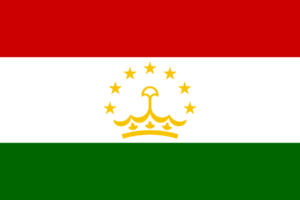Like other citizens, lawyers are entitled to exercise freedom of expression, belief, association and assembly.{{1}}
In addition to the right to form and join self-governing professional associations, as discussed above, lawyers have the right collectively and individually to take part in public discussions of matters concerning the law, the administration of justice, and human rights; to join or form local, national or international organizations; and to attend the meetings of such groups or associations without suffering professional restrictions.
In exercising their rights to freedom of expression and association, lawyers must conduct themselves in line with applicable laws (though such laws must themselves be compatible with international human rights standards) and recognized standards and ethics of the legal profession.{{2}}
a) Freedom of association
Lawyers have a single independent and self-regulated body in which registration is mandatory in order to practice.{{3}}
Laws do not seem to prohibit the formation of other types of professional organizations, nor is the ICJ aware of reports of restrictions upon freedom of association of lawyers in practice, although the ICJ has not conducted detail research in this regard.
b) Freedom of expression and assembly
The right to freedom of expression is enshrined in the Constitution of Honduras and applies to all citizens without exception. However, the Constitution provides for suspension of freedom of expression when national security and peace is under threat.
As noted above, lawyers in Honduras have been intimidated and attacked in the course and context of the exercise of their profession. It is unclear whether such intimidation and attacks are directed not only at interfering with their professional duties in particular cases but also at limiting the lawyers’ freedom of expression in other ways.
The UN Special Rapporteur on human rights defenders reported that, in May 2010, a Public Defender, (along with the four judges mentioned earlier) was arbitrary removed from post for allegedly taking part in peaceful demonstrations against the coup d’état of 2009. The Special Rapporteur noted by contrast that judges and court officials who had participated in demonstrations in favour of the Government created after the coup d’état, were not subject to the same treatment.{{4}} This suggests that the Public Defender was targeted specifically for political reasons related to the content of his exercise of freedom of expression.
[[1]]1. UN Basic Principles on the Role of Lawyers, [expand title=”Principle 23;”]
Lawyers like other citizens are entitled to freedom of expression, belief, association and assembly. In particular, they shall have the right to take part in public discussion of matters concerning the law, the administration of justice and the promotion and protection of human rights and to join or form local, national or international organizations and attend their meetings, without suffering professional restrictions by reason of their lawful action or their membership in lawful organization. In exercising these rights, lawyers shall always conduct themselves in accordance with the law and the recognized standards and ethics of the legal profession.
[/expand][[1]]
[[2]]2. UN Basic Principles on the Role of Lawyers, [expand title=”Principle 23;”]
Lawyers like other citizens are entitled to freedom of expression, belief, association and assembly. In particular, they shall have the right to take part in public discussion of matters concerning the law, the administration of justice and the promotion and protection of human rights and to join or form local, national or international organizations and attend their meetings, without suffering professional restrictions by reason of their lawful action or their membership in lawful organization. In exercising these rights, lawyers shall always conduct themselves in accordance with the law and the recognized standards and ethics of the legal profession.
[/expand] Draft Universal Declaration on the Independence of Justice (also known as the Singhvi Declaration), [expand title=”Article 92;”]
Lawyers shall enjoy freedom of belief, expression, association and assembly; and in particular they shall have the right to: (a) Take part in public discussion of matters concerning the law and the administration of justice; (b) Join or form freely local, national and international organizations; (c) Propose and recommend well considered law reforms in the public interest and inform the public about such matters; (d) Take full and active part in the political, social and cultural life of their country.
[/expand] International Commission of Jurists, Geneva Declaration: Principles on Upholding the Rule of Law and the Role of Judges and Lawyers in Times of Crisis (2008), [expand title=”Principle 5;”]
In times of crisis the stability and continuity of the judiciary is essential. Judges should not be subject to arbitrary removal, individually or collectively, by the executive, legislative or judicial branches. Judges may only be removed, by means of fair and transparent proceedings, for serious misconduct incompatible with judicial office, criminal offence or incapacity that renders them unable to discharge their functions. The right of judges and lawyers to freedom of association, including the right to establish and join professional associations, must at all times be respected.
[/expand] International Bar Association (IBA), Standards for the Independence of the Legal Profession, [expand title=”Standard 14.”]
Lawyers shall not by reason of exercising their profession be denied freedom of belief, expression, association and assembly; and in particular they shall have the right to: a) take part in public discussion of matters concerning the law and the administration of justice; b) join or form freely local, national and international organisations; c) propose and recommend well considered law reforms in the public interest and inform the public about such matters.
[/expand][[2]]
[[3]]3. Organic Law of the Bar Association in Honduras, article 1, decree no. 28,438, 8 April 1930.[[3]]
[[4]]4. UN Special Rapporteur on the situation of human rights defenders, Report to the Human Rights Council on a mission to Honduras, UN Doc. A/HRC/22/47/Add.1 (13 December 2012), para. 93. See also CEJIL, “CEJIL Condemns Dismissal of Judges Who Opposed Coup D’Etat” (6 May 2010), last accessed 11 December 2014.[[4]]





